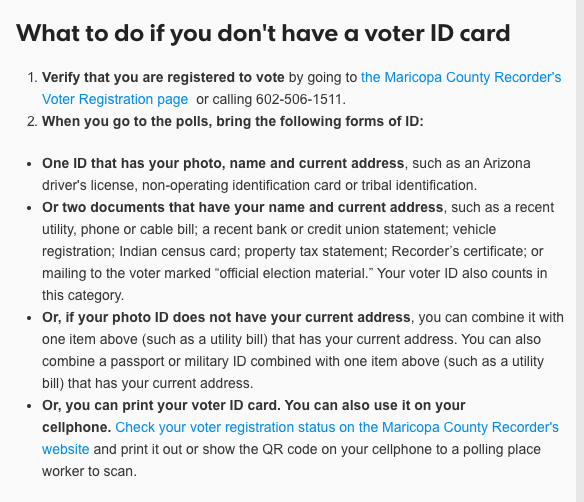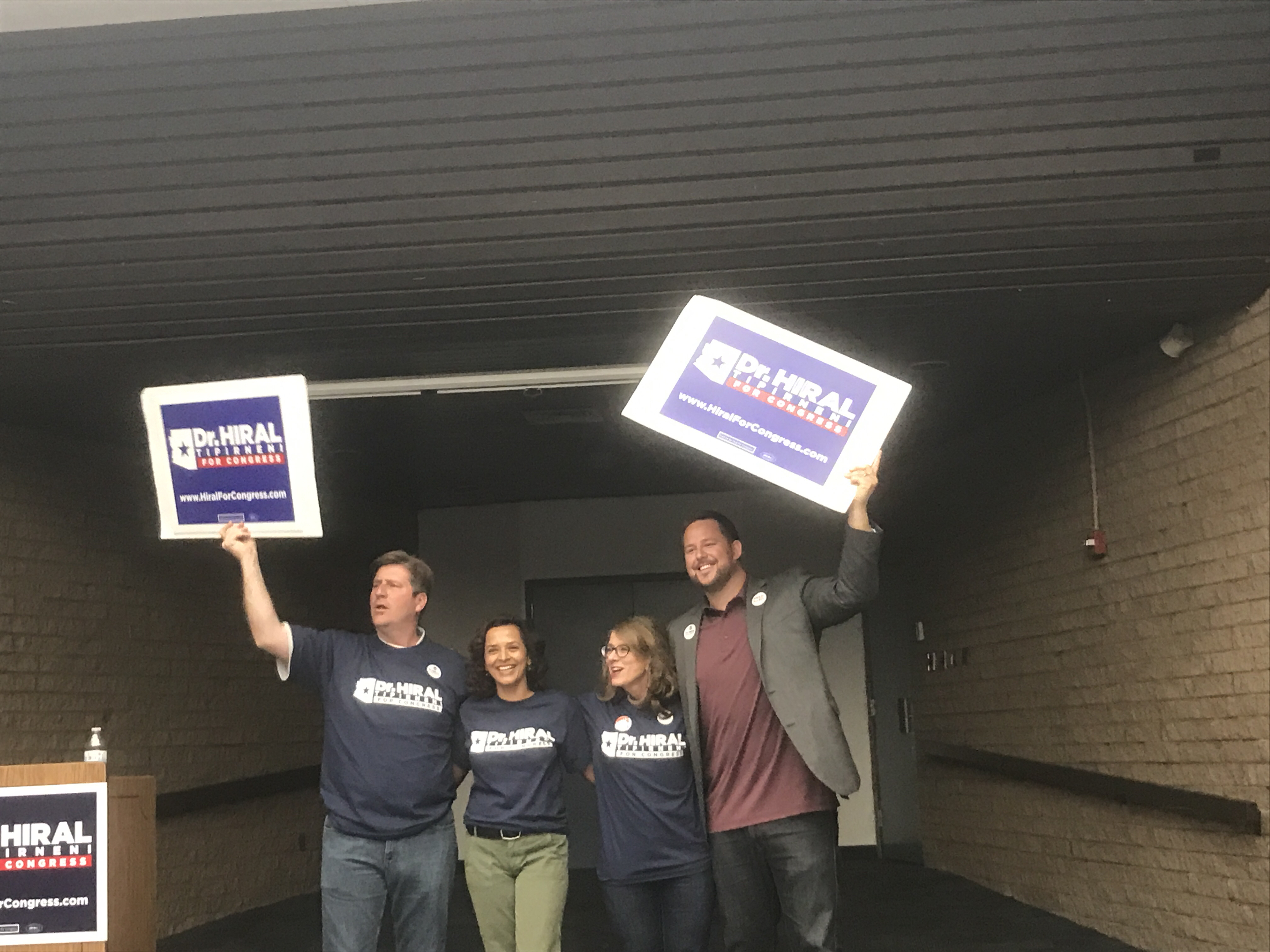PHOENIX, ARIZONA — As residents of Arizona’s eighth congressional district cast ballots in a special election to replace former Rep. Trent Franks (R-AZ) in Congress, roughly 140,000 of them may be unaware they are eligible to vote because they did not receive the ID card the county is required to send them after they register.
According to the Arizona Republic, Maricopa County officials have not sent all voters the cards they can use to cast a ballot under Arizona’s voter ID law because of an issue with the company used to print the materials. The paper reports that just 60,000 ID cards have been mailed to people who recently registered or changed their registration, while about 140,000 have not been sent.
Adrian Fontes, the county recorder who oversees elections in Maricopa County, told ThinkProgress on Monday that he’s not concerned with what he sees as a “little hiccup in printing.”
“It’s not that big of an impact on voters because we have redundancies in our system,” said Fontes, a Democrat who took office in 2016 after he campaigned on a promise to fight voter suppression and expand the right to vote in a county notorious for voting issues. “Every voter already got either a ballot in the mail or they got a sample ballot in the mail.”
Fontes added that people who don’t have the voter ID card should not be turned away from the polls Tuesday if they have other forms of acceptable ID.
The Arizona Republic published information guides for voters who have not received their cards in the mail.

Arizona was one of the first states in the country to enact a non-photo voter ID law when a ballot measure was approved by voters in November 2004. Under the law, the state must take steps to ensure that all eligible voters have an acceptable form of ID. According to the secretary of state’s office, “a county recorder must issue a voter ID card to any new registrant or an existing registrant who updates his or her name, address or political party preference.”
But because of an error by the company used to print the ID cards, they have not been mailed out since December.
Although these citizens could provide other forms of ID at the polls, some voters told the Arizona Republic they’re concerned that less informed voters may not realize they are registered without the card.
“It’s another black eye for this Recorder’s Office,” Mesa, Arizona voter Larry Smith, who hasn’t received a new card even though he updated his registration in January, told The Arizona Republic. “You’ve got people registering to vote, some of them for the first time in their lives. It’s the duty of the Recorder to send them a voter ID card.”
During the presidential primary in March 2016, some Maricopa County voters waited in line for up to five hours to cast a ballot. The chaos led to an investigation by the Department of Justice and numerous lawsuits, including one filed by the Democratic National Committee.
Before the U.S. Supreme Court gutted the Voting Rights Act in 2013, Arizona was required to pre-clear any changes to its voting law with the DOJ.
Arizona now allows any eligible voter who desires to cast an early ballot by mail. According to the secretary of state, roughly 150,000 people had already voted as of Monday morning, making up around 80 percent of the of the total votes that likely will be cast. Of those that have already voted, almost 60 percent are 65 or older.
Fontes said his office will work to fix the problem with ID cards before future elections in Arizona.
“We’d like to perform better and we’d like to fix these circumstances,” he said. “But it’s also a very good opportunity for us to communicate to folks that it’s not the end all, do all and you’re going to get all the other information that you need by other means.”

